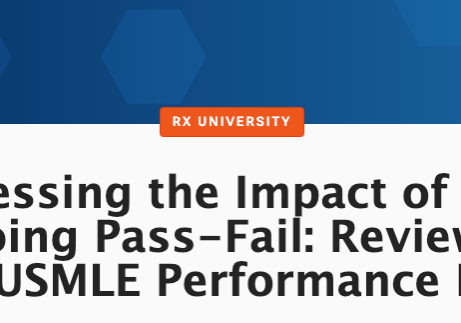Unfortunately, it happens sometimes that qualified IMG applicants do not match. Having gathered information from fellow international graduates on this topic, some who have succeeded and some who have failed, I have assembled a list of common mistakes people make when applying, only to be disappointed on match day.
1) Low step scores for your specialty of interest.
You have to be realistic with yourself on this one. Every specialty and program have different cut-offs for minimum Step 1 scores. Do not bother applying if you are below their stated minimum (such as 200 or 210), which is typically well-below the actual average score for those interviewed or ranked. Be realistic, as your nationality is irrelevant if you are trying to get an orthopedic surgery spot with a Step 1 score of 190.
If you have a low score and your dream profession is likely out of range, then you will need to apply to a Plan B specialty (on the likelihood that you do not match into your Plan A specialty). However, the object is to avoid being in this situation altogether.
Do not, I repeat, do not take the steps until you are confident you will pass and with the score you need. It is better to train elsewhere and study until you are ready, otherwise you could be closing the door on an American residency indefinitely.
Once you have passed a step exam, you cannot retake it, even if the score is low. If you are unclear as to your readiness, take an NBME® practice test and don’t sit the exam until you are past or near your minimum goal.
The NRMP® provides a lot of data on statistics for average step scores per specialty.
2) Visa-related barriers
While visa status is rarely the only reason why someone doesn’t get interviews, it can certainly play a part, as is also known that due to the licensing requirements of certain specialties and programs do not accept applicants with visas or simply do not accept international grads except in very rare cases.
Do your research if you plan to go into a specialty field, as you might find there are only a handful of programs in that field that sponsor visas. Internal medicine and family medicine have larger numbers of training programs, including a large number of community ones, and thus you generally are safe if you apply for those.
3) No work experience in the USA
Sub-internships are best, but even if you have graduated and can only do an observership, it is better than no experience at all. Some graduated IMGs opt to move to the US, study for boards while doing observerships, and then apply and conduct research during the second year in the US while interviewing and applying. It is a longer path and nothing is guaranteed but it at least gives you a chance, whereas applying without any experience in US hospitals is very risky and unwise, as you could waste a lot of time and money.
4) Not having research for a specialty that expects it.
You have to know that certain specialties basically “require” that you have some research on your CV. Typically this applies to those that are more competitive, but a little research/poster/publication never hurts no matter what you are applying for, especially if you are an international grad. Again, reading the statistics on the NRMP® website will give you an idea of what percentage of accepted applicants had completed research prior to applying in the various fields.
If you applied and did not match and your goal is still to move to the US, I recommend analyzing these aspects of your application closely. Remain realistic about step scores and visa barriers for various subspecialties. It might help to contact a mentor or friend in medicine in the US for advice on your personal statement and options at their specific medical centers.
For those still applying, set a month-to-month schedule for accomplishing your goals and remain optimistic but always with a back-up plan. Best of luck!




